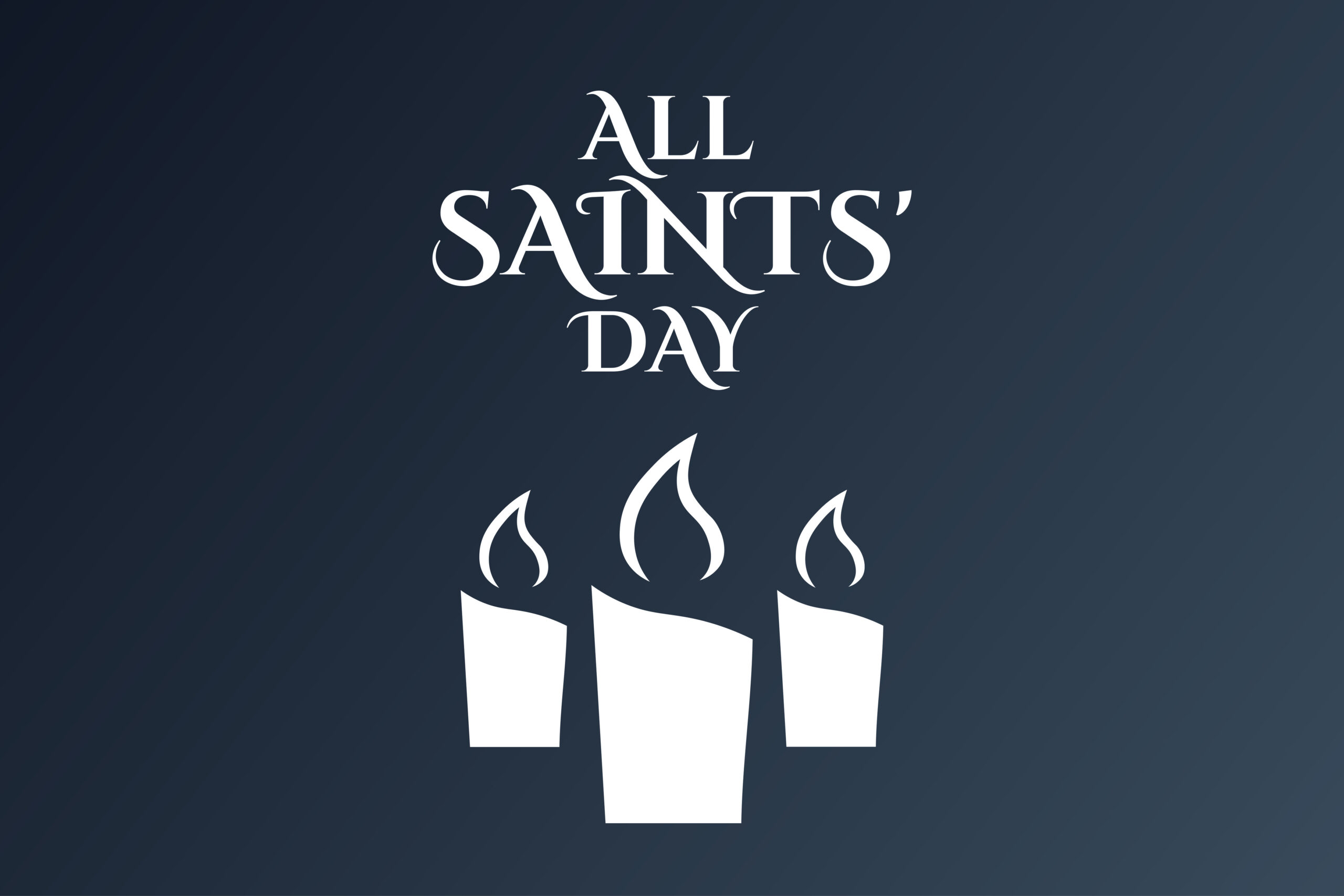Rev. Douglas J. House, M.Div.
“Above all, remember that God looks for solid virtues in us” -St. Ignatius Loyola
One of the joys of teaching Western Religion at the university is the discussions I share with students whose religious backgrounds are varied. Some enter my classroom with a very detailed understanding of their particular religious culture, others not so much. I teach from the perspective that we are all beginning, and know only a little about the religions that we encounter in my courses.
Recently a question came up about what All Saints Day is and why is it important in Christianity. All Saints is a day set aside on the Christian calendar when the church pauses to remember those individuals from the past whose lives demonstrated faithfulness to God as well as having had an impact on the lives of others.
Historically, the day that the individual died would be designated as a “saint’s day”, and it would commemorate the day he or she was born into new life in heaven. The Christian calendar remembers St. Matthew, for instance, on September 21st as this was recorded as the day that he died.
As time progressed, there evolved more saints to remember in history than there were days to assign them. Therefore, November 1st came to be identified as “All Saints Day” in the Christian calendar. It is a day to remember all the saints in time who have helped to shape and share Christian belief throughout the centuries.
“I sing a song of the saints of God, patient and brave, and true- Who toiled and fought and lived and died, For the Lord they loved and knew.” – Lesbia Scott
But what about people who were faithful to God in the course of their lives, but who are not the ones whom history remembers? What about the regular people who lived lives of faith, shouldn’t they also be remembered; those who “toiled and fought and lived and died for the Lord they loved and knew”?
As November 1st represents the day for remembering the saints, November 2nd came to be known as All Souls Day, a day set aside to remember “all souls” who have died. Various Christian traditions may observe these days in different ways, but as a rule, over time the two days have come to be merged together. All Saints is often observed now as the day to remember everyone who has entered through the gates of larger life.
“Lord, make me an instrument of your peace.” -St. Francis of Assisi
When we consider it, our lives have been influenced by so many people. Some are souls whose lives are widely remembered, such as that of St. Francis of Assisi, while others who have touched our lives may have been known and loved by a smaller circle of friends and family. Whoever they may be, those who have gone on through the gates of eternal life, having touched our hearts and souls, are ones to be remembered. They have come to place their imprint upon our lives. We remember the things they said, the elements of life that they loved, the impact that they had on us and so many others in the course of their days. And while they may no longer be physically with us, we believe that they live on in another dimension, on a distant shore.
In the New Testament, the author of the Letter to the Hebrews shares the vision that we are “surrounded by a great cloud of witnesses”, people who have lived their life on earth and have moved on, yet their presence surrounds us in the course of our days. We have not forgotten them, and especially on All Saints Day, we pause to remember. We remember things they said, times we laughed and the tears we shed together. We remember how they made us feel while in their midst, and we confess that those who have gone on are truly missed. But as the writer of the Letter to the Hebrews reminds us, those who have passed on remain with us in special ways…like a cloud of witnesses that surrounds us and continues to be with us. So, while we remember them every day, on All Saints Day, we intentionally recall their life’s story, and we offer a word of thanks to God.


